Abstract
Anatomical studies employing the immunofluorescence localization of dopamine-beta-hydroxylase [= dopamine beta-monooxygenase; 3,4-dihydroxyphenylethylamine, ascorbate:oxygen oxidoreductase (beta-hydroxylating); EC 1.14.17.1] have demonstrated in brain central noradrenergic nerve fibers on small intraparenchymal blood vessels, including capillaries. This system is distinct from the peripheral noradrenergic system inervating the large extraparenchymal blood vessels. From these anatomical findings evolved the working hypothesis that the central noradrenergic system is analogous to the peripheral sympathetic system except that it is specialized for performing specific functions related to the brain microvasculature. To test this hypothesis cerebral blood flow and the brain vascular permeability of water (H215O) were measured in four adult rhesus monkeys (three with bilateral superior cervical ganglionectomies) with stereotaxically placed cannulae permanently located in the lateral ventricles and the locus coeruleus for the injection of drugs. Our data demonstrate that stimulation of the noradrenergic cell bodies in the locus coeruleus with carbachol (8 mug) produces a prompt reduction in hemispheric cerebral blood flow and an increase in brain vascular permeability of water. The intraventricular administration of the alpha-adrenergic blocker phentolamine (25--50 mug) has the opposite effect. These preliminary data support the hypothesis that the central noradrenergic system is analogous to the peripheral sympathetic system with the special function of regulating brain vascular permeability as well as blood flow.
Full text
PDF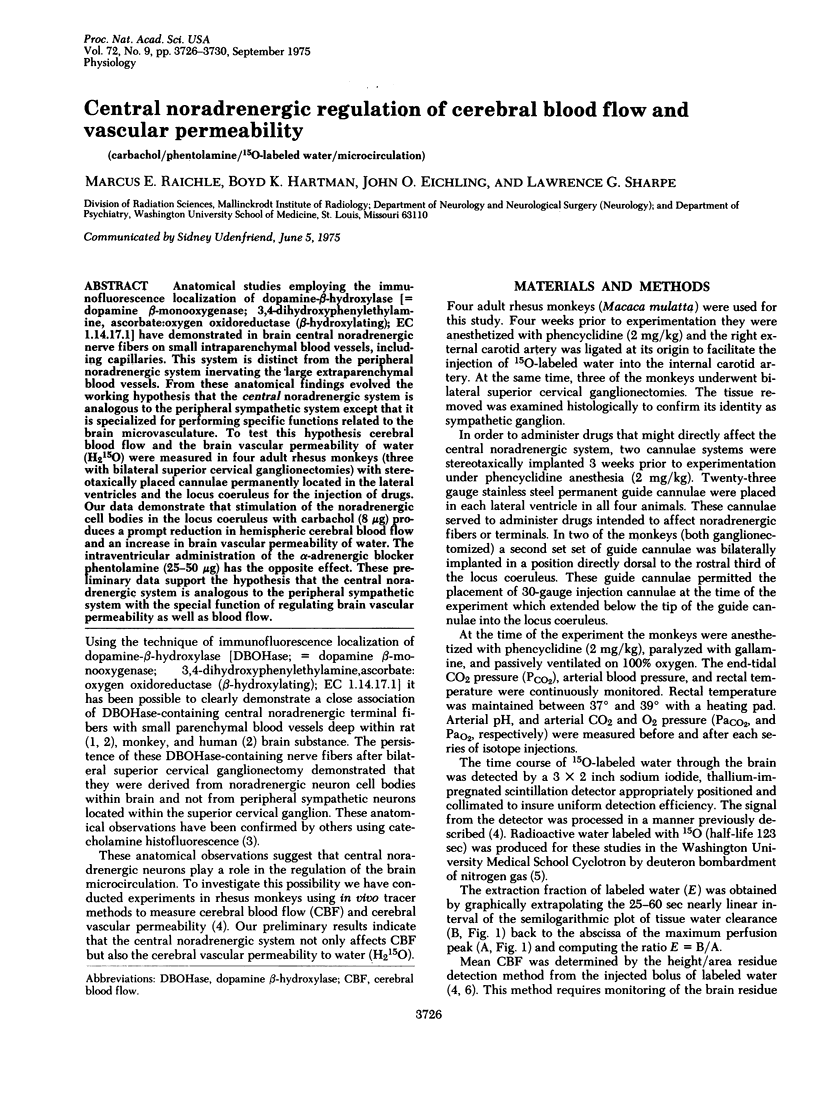
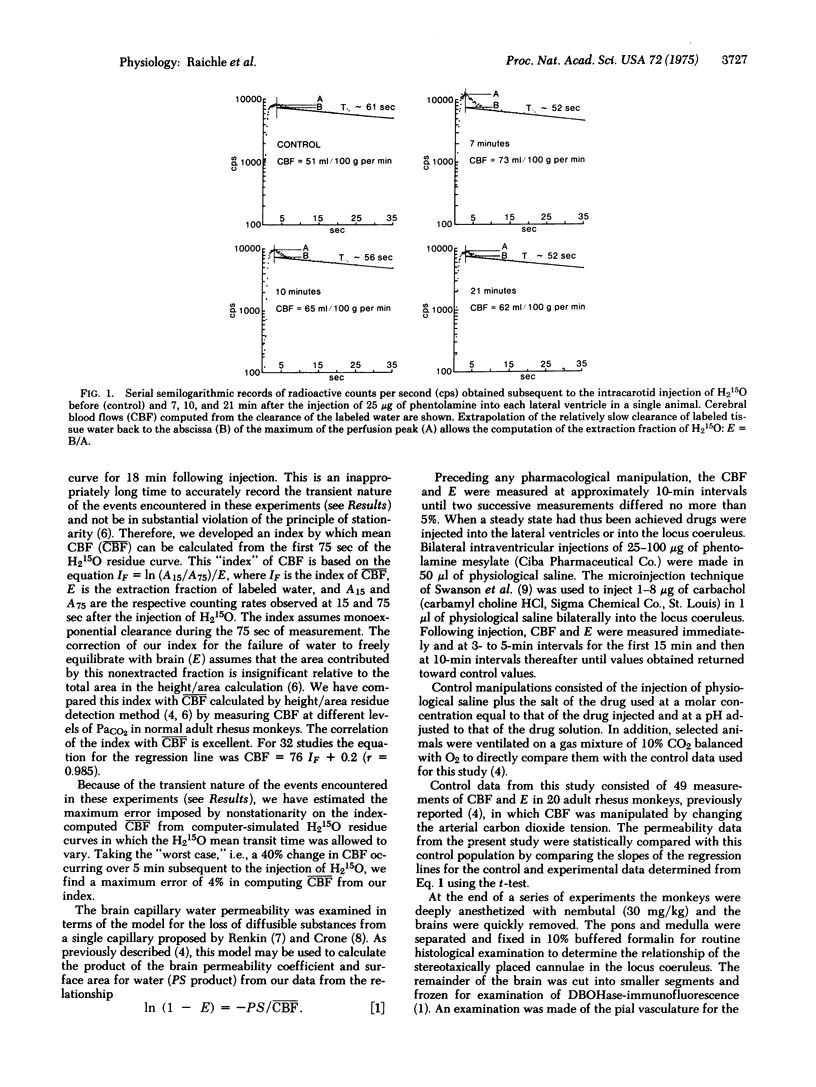
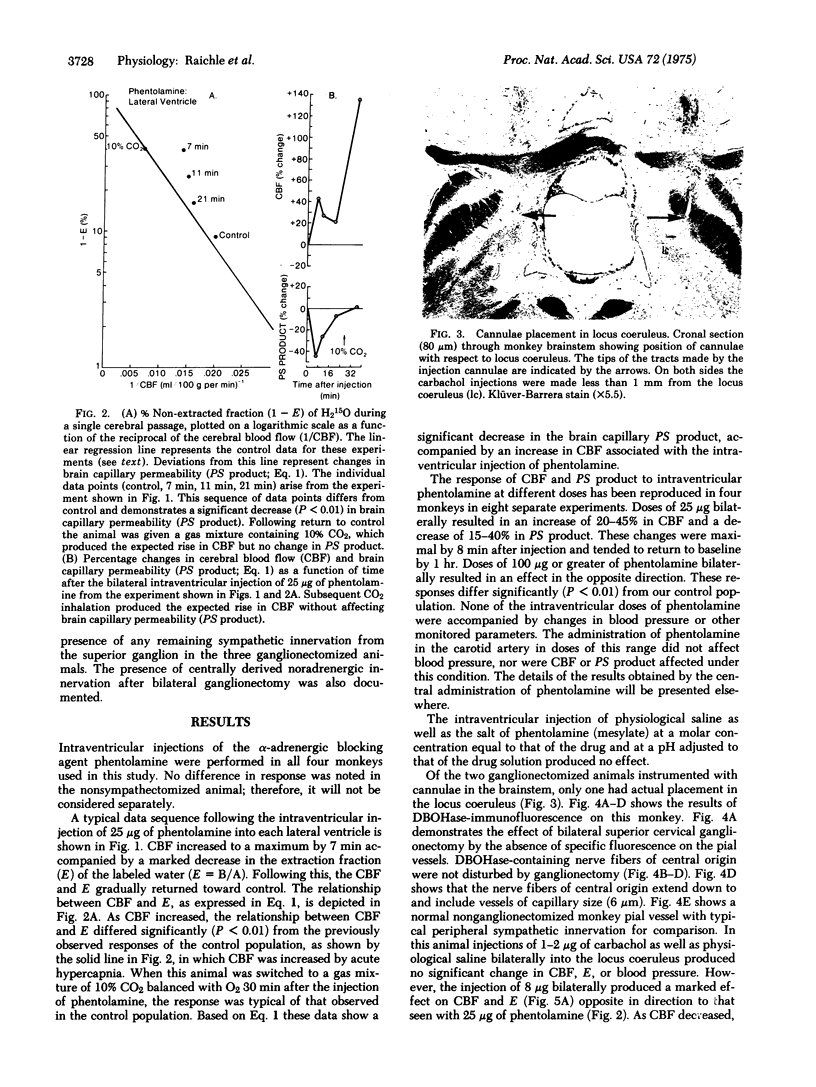
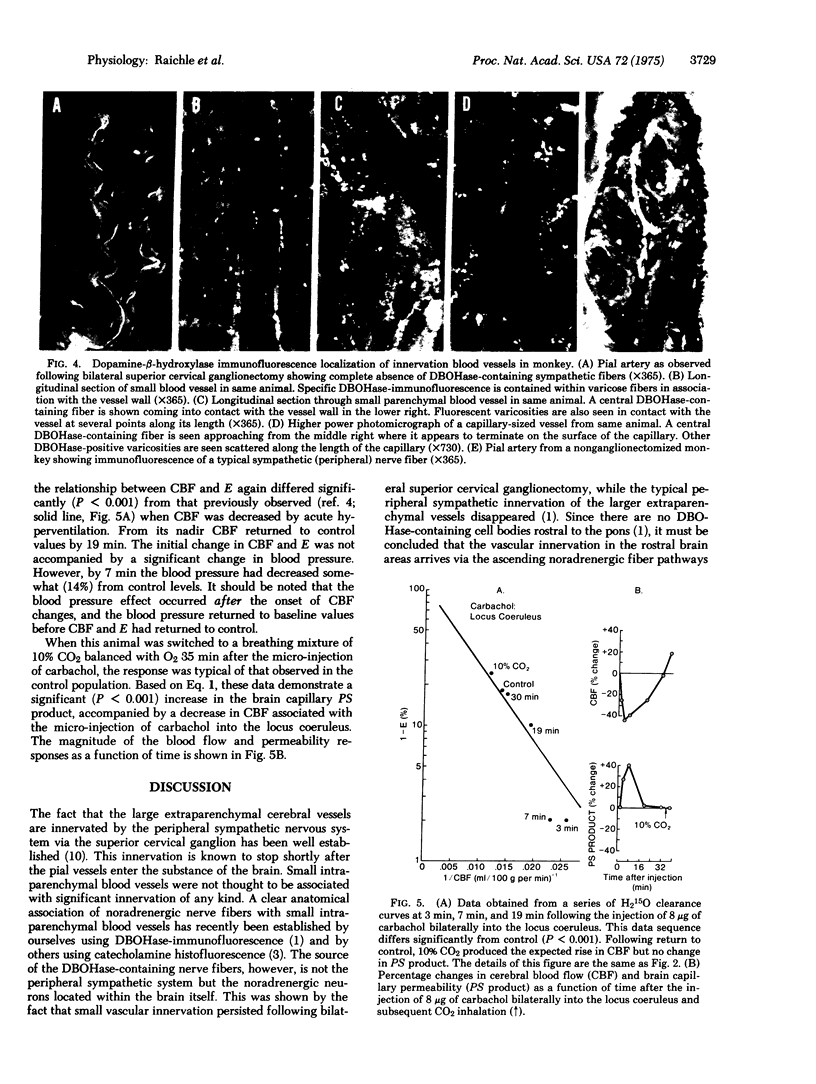
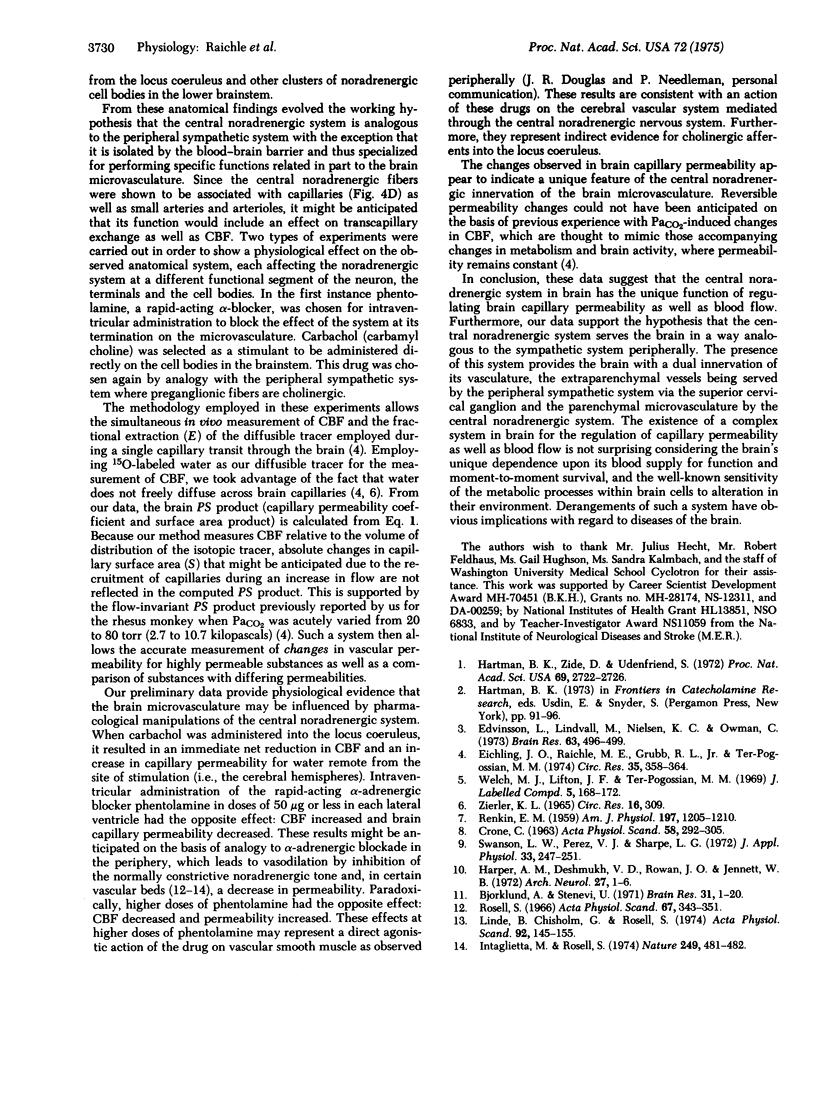
Images in this article
Selected References
These references are in PubMed. This may not be the complete list of references from this article.
- Björklund A., Stenevi U. Growth of central catecholamine neurones into smooth muscle grafts in the rat mesencephalon. Brain Res. 1971 Aug 7;31(1):1–20. doi: 10.1016/0006-8993(71)90630-5. [DOI] [PubMed] [Google Scholar]
- CRONE C. THE PERMEABILITY OF CAPILLARIES IN VARIOUS ORGANS AS DETERMINED BY USE OF THE 'INDICATOR DIFFUSION' METHOD. Acta Physiol Scand. 1963 Aug;58:292–305. doi: 10.1111/j.1748-1716.1963.tb02652.x. [DOI] [PubMed] [Google Scholar]
- Edvinsson L., Lindvall M., Nielsen K. C., Owman C. Are brain vessels innervated also by central (non-sympathetic) adrenergic neurones? Brain Res. 1973 Dec 7;63:496–499. doi: 10.1016/0006-8993(73)90131-5. [DOI] [PubMed] [Google Scholar]
- Eichling J. O., Raichle M. E., Grubb R. L., Jr, Ter-Pogossian M. M. Evidence of the limitations of water as a freely diffusible tracer in brain of the rhesus monkey. Circ Res. 1974 Sep;35(3):358–364. doi: 10.1161/01.res.35.3.358. [DOI] [PubMed] [Google Scholar]
- Harper A. M., Deshmukh V. D., Rowan J. O., Jennett W. B. The influence of sympathetic nervous activity on cerebral blood flow. Arch Neurol. 1972 Jul;27(1):1–6. doi: 10.1001/archneur.1972.00490130003001. [DOI] [PubMed] [Google Scholar]
- Hartman B. K., Zide D., Udenfriend S. The use of dopamine -hydroxylase as a marker for the central noradrenergic nervous system in rat brain. Proc Natl Acad Sci U S A. 1972 Sep;69(9):2722–2726. doi: 10.1073/pnas.69.9.2722. [DOI] [PMC free article] [PubMed] [Google Scholar]
- Intaglietta M., Rosell S. Capillary permeability and sympathetic activity in canine subcutaneous adipose tissue. Nature. 1974 May 31;249(456):481–482. doi: 10.1038/249481a0. [DOI] [PubMed] [Google Scholar]
- Linde B., Chisolm G., Rosell S. The influence of sympathetic activity and histamine on the blood-tissue exchange of solutes in canine adipose tissue. Acta Physiol Scand. 1974 Oct;92(2):145–155. doi: 10.1111/j.1748-1716.1974.tb05731.x. [DOI] [PubMed] [Google Scholar]
- RENKIN E. M. Transport of potassium-42 from blood to tissue in isolated mammalian skeletal muscles. Am J Physiol. 1959 Dec;197:1205–1210. doi: 10.1152/ajplegacy.1959.197.6.1205. [DOI] [PubMed] [Google Scholar]
- Rosell S. Release of free fatty acids from subcutaneous adipose tissue in dogs following sympathetic nerve stimulation. Acta Physiol Scand. 1966 Jul-Aug;67(3):343–351. doi: 10.1111/j.1748-1716.1966.tb03320.x. [DOI] [PubMed] [Google Scholar]
- Swanson L. W., Perez V. J., Sharpe L. G. Accurate and reliable intracerebral delivery of minute volumes of drug solutions. J Appl Physiol. 1972 Aug;33(2):247–251. doi: 10.1152/jappl.1972.33.2.247. [DOI] [PubMed] [Google Scholar]
- ZIERLER K. L. EQUATIONS FOR MEASURING BLOOD FLOW BY EXTERNAL MONITORING OF RADIOISOTOPES. Circ Res. 1965 Apr;16:309–321. doi: 10.1161/01.res.16.4.309. [DOI] [PubMed] [Google Scholar]




